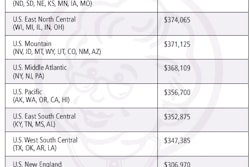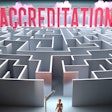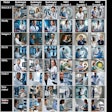The American Society of Radiologic Technologists (ASRT) held a briefing on Capitol Hill last week to educate members of Congress about the importance of passing a bill that would establish federal education and certification standards for healthcare providers of radiology-related services.
HR 2104, the Consistency, Accuracy, Responsibility, and Excellence (CARE) in Medical Imaging and Radiation Therapy bill, was introduced by Reps. Ed Whitfield (R-KY) and John Barrow (D-GA) in the U.S. House of Representatives in June 2011. It currently has 117 co-sponsors.
At the May 17 briefing sponsored by Whitfield and Barrow, ASRT President Dawn McNeil described the work of a radiologic technologist and the importance of making the bill a federal law with respect to patient safety. Presentations were also made by representatives of the American College of Radiology (ACR), the Medical Imaging and Technology Alliance (MITA), and the Society of Nuclear Medicine (SNM). Thirty-five professional healthcare organizations endorse the bill.
ASRT has been lobbying since 1999 to get a bill passed by the U.S. Congress that would require radiologic technologists and other healthcare professionals involved in radiology treatment -- such as dosimetrists and medical physicists -- to have successfully completed a minimum set of educational requirements and be licensed in their states.
Only 43 states have any regulatory guidelines for radiologic personnel, and standards vary significantly from state to state. In the remaining seven states and the District of Columbia, any individual is permitted to perform sophisticated radiologic procedures after only a few weeks of training. By comparison, a certified radiologic technologist must have at least two years of formal education in radiation protection and technique, pass a national certification exam, and earn 24 hours of continuing education every two years.



















